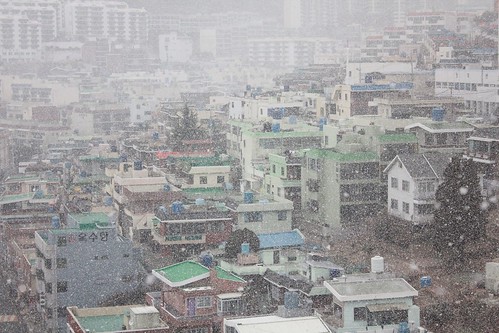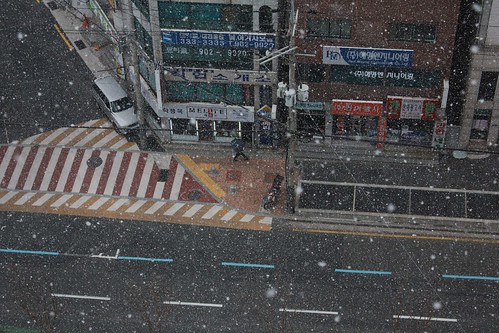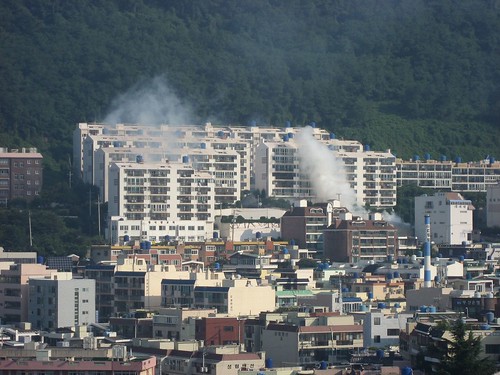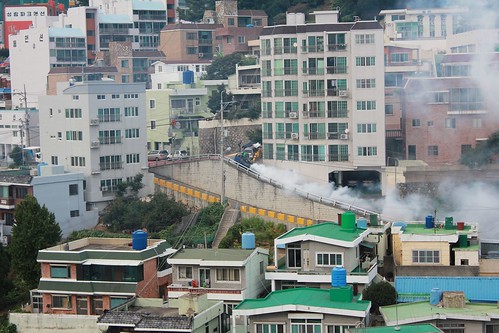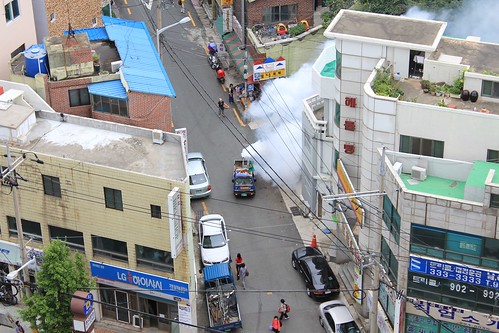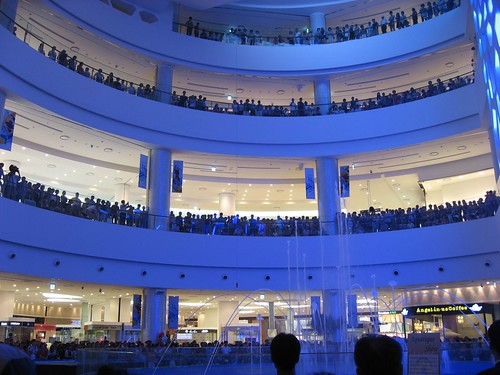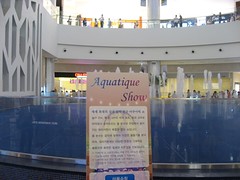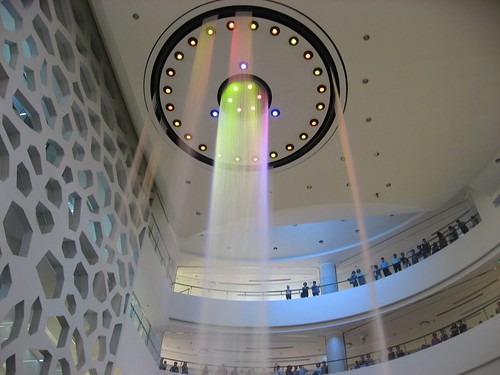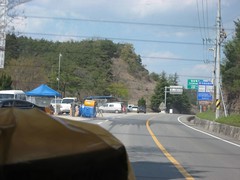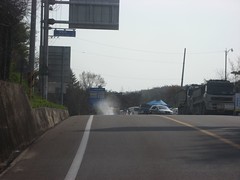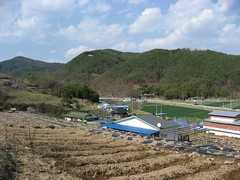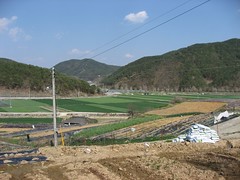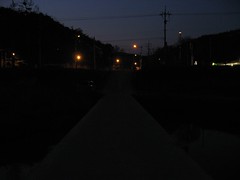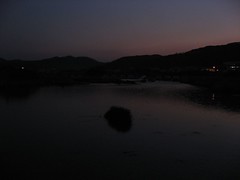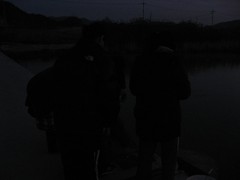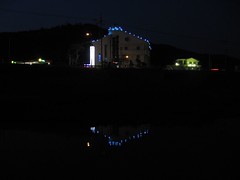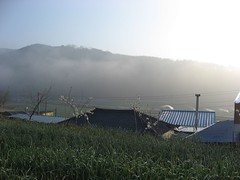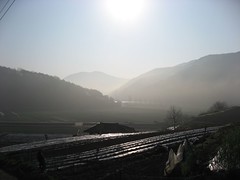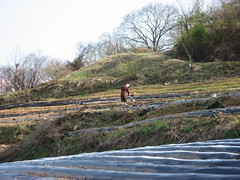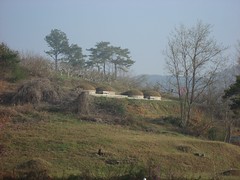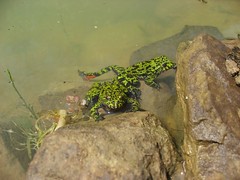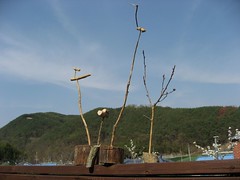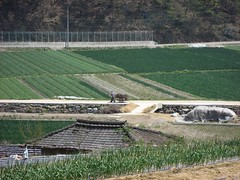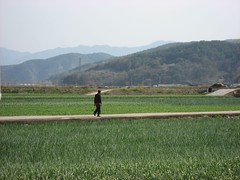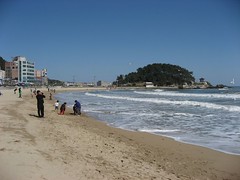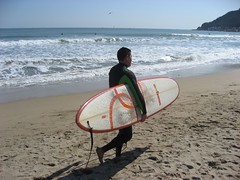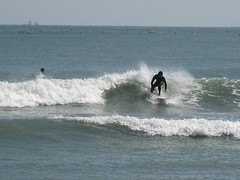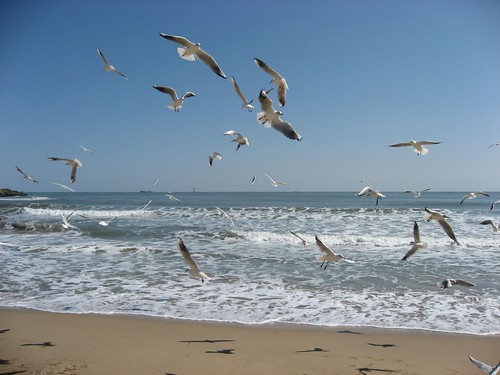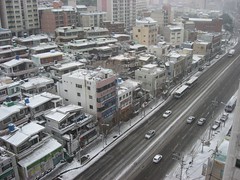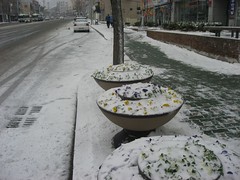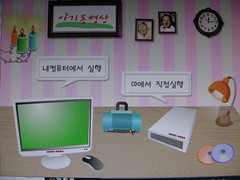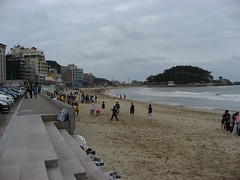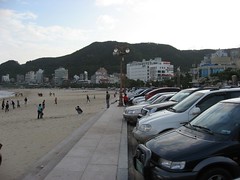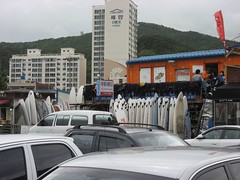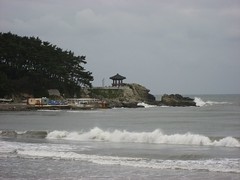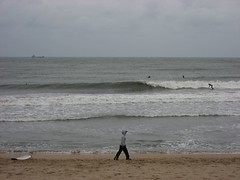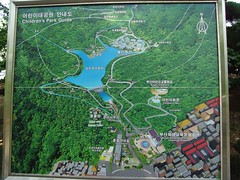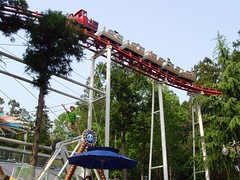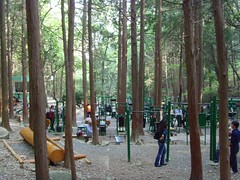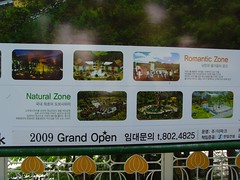Recognising that living in Korea conventionally meant actually trying to live in it, I took the opportunity to do some writing for the local English-language radio station and appear on their shows, and later I got a part-time programming job so I started spending a lot of my life really out there, on the move.
One day I was on the move back from the radio station when the subway train stopped in a station and stayed there. Announcements were made by the driver in Korean so I had no idea what was happening. Ten minutes passed, and during one announcement, I held my phone up to the speaker in the carriage for my wife to listen to the explanation. Perhaps unsurprisingly, there’d been a suicide at the next station ahead of us.
Right now, screen doors are being installed at most – if not eventually all – of Busan’s subway stations ‘for your comfort and convenience’, by which I’m pretty sure they actually mean “to stop you throwing yourself off the platform into the path of an oncoming train”, which I understand happens quite a lot.
I don’t know if these suicides are planned, because it’s occurred to me in recent years that climbing up to the top of a building requires effort, but throwing yourself out in front of a train can be one of those spur of the moment decisions that mark a final act of rebellion amid Korea’s claustrophobic social conformity, although evidently placing doors on the platform to enforce a further level of social conformity is going to solve this problem.
After twenty minutes most people had left the train, but I didn’t want to venture up to the surface and try and deal with a Korean taxi-driver, so I took my chances and waited with the five other people who remained, pondering the unanswerable question of who this person was, why they’d chosen to end their life by being hit by a subway train at 8.25pm on a Wednesday evening, and whether inconveniencing the many thousands of people who had found themselves stuck in the subway system was what they wanted from their final act in this world.
I also wondered how long it took to clear a badly mangled body from the subway tracks. I imagined it would be quite a long time. Apart from the mess, surely the police would want to ensure there was no foul play? Twenty minutes is all it takes as it turns out. Because all of this has happened before, and all of this will happen again. The procedures for scraping humans off the subway tracks in Korea is well practised, and the local authorities are the Formula 1 pit crews of suicide clean-ups, which is a rather depressing realisation.
As someone who has struggled on and off with depression for a long time but is determined to see life through to its bitter end, I’m not sure I would be the best person to try and talk a suicidal Korean out of their intended course of action. But when I walked down the subway steps to the platform of one of the many trains I was catching one Thursday recently, I momentarily checked myself on discovering a youth around the age of 18 sat at the bottom sobbing uncontrollably. The new screen doors are not yet functional and his proximity three meters away from the fast end of the platform instantly concerned me.
Of course, because of the language barrier there was almost certainly nothing meaningful I could say to him, and even if I could, it might have only made him feel worse about himself that he’d embarrassed himself in front of a foreigner.
Part of me just wanted to tell him to stop using an umbrella in the rain, which is what all Koreans do but I generally don’t. This marks me out as quite possibly mentally ill in the eyes of most Koreans who fail to see their own collected psychoses which are simply called ‘society’ here, but to live life is to endure a lifetime of emotional pain far greater than the minor discomfort of getting a little wet. If you can’t feel the rain on your head and stare up in the sky and see the wonder in it falling towards you, reminding you that you are alive against the odds and for the briefest of moments in this Universe, then how can you cope with anything else? Umbrellas are a great evil foisted upon society, quite possibly as part of a secret plot by the psychiatric industry.
Becoming a father turned out to be a strange experience for me. I often look at my son wondering about his future and consider that as he is now, I once was, and as I am now, he may become. The circle of life goes on with many of the same scenes but different players. How will my story end? How will my son’s if he doesn’t live to see the Singularity? That mangled body on the tracks was someone’s baby once, and after all the joy and difficulties their parents must have experienced this is what it came down to.
That day, our twenty minutes came to an end, the blood of someone’s child was cleaned off the Busan subway tracks, and the rest of us inevitably resumed our journeys to our own eventual destinations.
